第65章 FROM THE MERRIMACK TO THE MISSISSIPPI(6)
Returning from the West immediately after my graduation,I was for ten years or so a teacher of young girls in seminaries much like my own Alma Mater.The best result to me of that experience has been the friendship of my pupils,--a happiness which must last as long as life itself.
A book must end somewhere,and the natural boundary of this narrative is drawn with my leaving New England for the West.Iwas to outline the story of my youth for the young,though Ithink many a one among them might tell a story far more interesting than mine.The most beautiful lives seldom find their way into print.Perhaps the most beautiful part of any life never does.I should like to flatter myself so.
I could not stay at the West.It was never really home to me there,and my sojourn of six or seven years on the prairies only deepened my love and longing for the dear old State of Massachusetts.I came back in the summer of 1852,and the unwritten remainder of my sketch is chiefly that of a teacher's and writer's experience;regarding which latter I will add,for the gratification of those who have desired them,a few personal particulars.
While a student and teacher at the West I was still writing,and much that I wrote was published.A poem printed in "Sartain's Magazine,"sent there at the suggestion of the editor of the "Lowell Offering"was the first for which I received remuneration--five dollars.Several poems written for the manuscript school journal at Monticello Seminary are in the "Household"collection of my verses,among them those entitled "Eureka,""Hand in Hand with Angels,"and "Psyche at School."These,and various others written soon after,were printed in the "National Era,"in return for which a copy of the paper was sent me.Nothing further was asked or expected.
The little song "Hannah Binding Shoes"--written immediately after my return from the West,--was a study from life--though not from any one life--in my native town.It was brought into notice in a peculiar way,--by my being accused of stealing it,by the editor of the magazine to which I had sent it with a request for the usual remuneration,if accepted.Accidentally or otherwise,this editor lost my note and signature,and then denounced me by name in a newspaper as a "literary thiefess;"having printed the verses with a nom de plume in his magazine without my knowledge.
It was awkward to have to come to my own defense.But the curious incident gave the song a wide circulation.
I did not attempt writing for money until it became a necessity,when my health failed at teaching,although I should long before then have liked to spend my whole time with my pen,could I have done so.But it was imperative that I should have an assured income,however small;and every one who has tried it knows how uncertain a support one's pen is,unless it has become very famous indeed.My life as a teacher,however,I regard as part of my best preparation for whatever I have since written.I do not know but I should recommend five or ten years of teaching as the most profitable apprenticeship for a young person who wished to become an author.To be a good teacher implies self-discipline,and a book written without something of that sort of personal preparation cannot be a very valuable one.
Success in writing may mean many different things.I do not know that I have ever reached it,except in the sense of liking better and better to write,and of finding expression easier.It is something to have won the privilege of going on.Sympathy and recognition are worth a great deal;the power to touch human beings inwardly and nobly is worth far more.The hope of attaining to such results,if only occasionally,must be a writer's best inspiration.
So far as successful publication goes,perhaps the first Iconsidered so came when a poem of mine was accepted by the "Atlantic Monthly."Its title was "The Rose Enthroned,"and as the poet Lowell was at that time editing the magazine I felt especially gratified.That and another poem,"The Loyal Woman's No,"written early in the War of the Rebellion,were each attributed to a different person among our prominent poets,the "Atlantic"at that time not giving authors'signatures.Of course I knew the unlikeness;nevertheless,those who made the mistake paid me an unintentional compliment.Compliments,however,are very cheap,and by no means signify success.I have always regarded it as a better ambition to be a true woman than to become a successful writer.To be the second would never have seemed to me desirable,without also being the first.
In concluding,let me say to you,dear girls,for whom these pages have been written,that if I have learned anything by living,it is this,--that the meaning of life is education;not through book-knowledge alone,sometimes entirely without it.
Education is growth,the development of our best possibilities from within outward;and it cannot be carried on as it should be except in a school,just such a school as we all find ourselves in--this world of human beings by whom we are surrounded.The beauty of belonging to this school is that we cannot learn anything in it by ourselves alone,but for and with our fellowpupils,the wide earth over.We can never expect promotion here,except by taking our place among the lowest,and sharing their difficulties until they are removed,and we all become graduates together for a higher school.
Humility,Sympathy,Helpfulness,and Faith are the best teachers in this great university,and none of us are well educated who do not accept their training.The real satisfaction of living is,and must forever be,the education of all for each,and of each for all.So let us all try together to be good and faithful women,and not care too much for what the world may think of us or of our abilities!
My little story is not a remarkable one,for I have never attempted remarkable things.In the words of one of our honored elder writers,given in reply to a youthful aspirant who had asked for some points of her "literary career,"--"I never had a career."
End